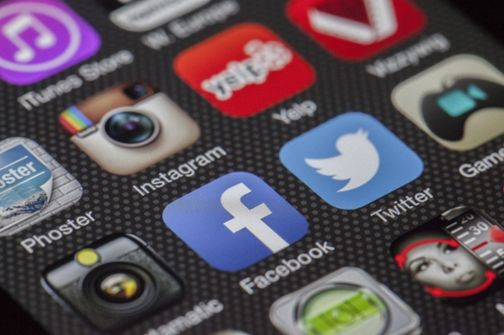Privacy nel mondo dei social
by Edoardo Marri (2006) Liceo Sesto Properzio, Assisi/Italy on 2024-06-06

An English version is provided beneath the Italian one.
Thanks to Pixabay for the picture.
C’è ancora privacy nel mondo dei social?
I social media sono strumenti di comunicazione efficaci e veloci, con i quali abbiamo tutti a che fare quasi ogni istante della nostra vita. I vari social media come Instagram, Facebook ecc... possono essere però visti anche come una minaccia per la nostra privacy.
La privacy online non è solo una questione individuale ma anche collettiva. I social media come Facebook e Instagram traggono parte dei loro guadagni dalle connessioni e dalle interazioni tra gli utenti; più il social diventa popolare, maggiore è il potere predittivo delle informazioni considerate riservate. Risulta esserci quindi una connessione tra la popolarità del singolo social media e la pericolosità verso la nostra privacy.
Inevitabilmente, quanto più il social cresce, più la nostra privacy è considerata a rischio.
La violazione della privacy digitale non è un argomento da sottovalutare perché potrebbe mettere a rischio la sicurezza fisica e psicologica degli utenti che non considerano questo aspetto o che usano i social imprudentemente.
Oltre ad essere un pericolo reale, la violazione della privacy digitale, o il furto di identità digitale, sono reati molto gravi, punibili penalmente.
Quali potrebbero essere le soluzioni?
Un attento uso dei social è sempre più necessario. L’importanza di un comportamento responsabile sui social media è stata ribadita dal Garante della Privacy nel lontano 2009, tramite una guida: “Social network: Attenzione agli effetti collaterali”, dove furono forniti agli utenti alcuni consigli utili per un uso consapevole dei social.
Come ulteriore testimonianza della pericolosità dei social media sotto questo punto di vista, L’articolo 5 del RGDP (Regolamento Generale sulla Protezione dei Dati) stabilisce i criteri utili a salvaguardare i dati personali.
I criteri principali sono i seguenti: i dati devono essere trattati in modo esplicito e legittimo, in modo lecito, equo e trasparente, limitatamente a quanto necessario rispetto alle finalità, e comunque essere trattati in modo da garantire un`adeguata sicurezza.
I social media ormai fanno parte in modo radicale della nostra vita, per questo dovrebbero essere usati con più riguardo per salvaguardare la nostra stessa privacy da eventuali minacce.
Fonti: network digital 360, agenda digitale, altalex.com
Is there still privacy in the world of social media?
Social media are effective and fast communication tools, which we all deal with almost every moment of our lives. However, the various networks such as Instagram, Facebook, etc. can also be seen as a threat to our privacy.
Online privacy is not only an individual issue but also a collective one. Facebook and Instagram derive their earnings, in part, from the connections and interactions among users; the more popular the social becomes, the greater the predictive power of information considered confidential is increased. Thus, there appears to be a connection between the popularity of social media and the danger to our privacy.
Inevitably, the more social media grow, the more our privacy is considered at risk.
The violation of digital privacy is not a subject to be underestimated because it could jeopardise the physical and psychological safety of users who do not consider this aspect, or who use them imprudently.
In addition to being a real danger, the violation of digital privacy, or digital identity theft, are very serious offences, punishable under criminal law.
What could the solutions be?
Careful use of social media is becoming increasingly necessary. The importance of responsible behavior on social media was also reiterated by the Privacy Authority back in 2009, in a guide: "Social networks: Beware of side effects" where users were given useful tips for a conscious use of these tools.
As further evidence of the danger of social media concerning this aspect, Article 5 of the GDPR (General Data Protection Regulation) defines the criteria for safeguarding personal data.
The main criteria are the following: data must be processed explicitly and legitimately in a lawful, fair and transparent way, limited to what is necessary with respect to the purposes, and in any case be treated in order to ensure adequate security.
Social media are now a radical part of our lives, that is why they should be used carefully to safeguard our own privacy from any possible threats.
Sources: network digital 360, agenda digitale, altalex.com




